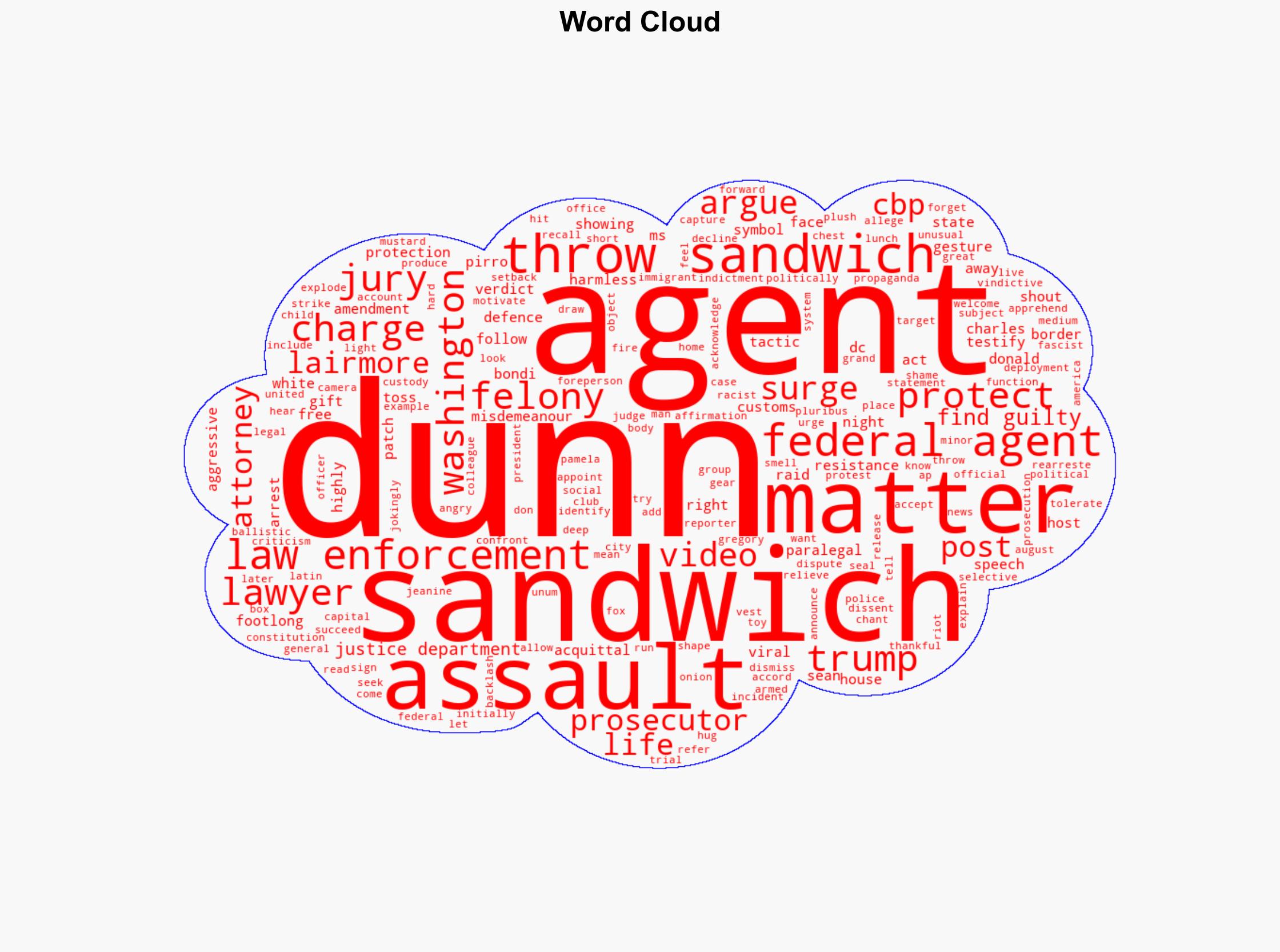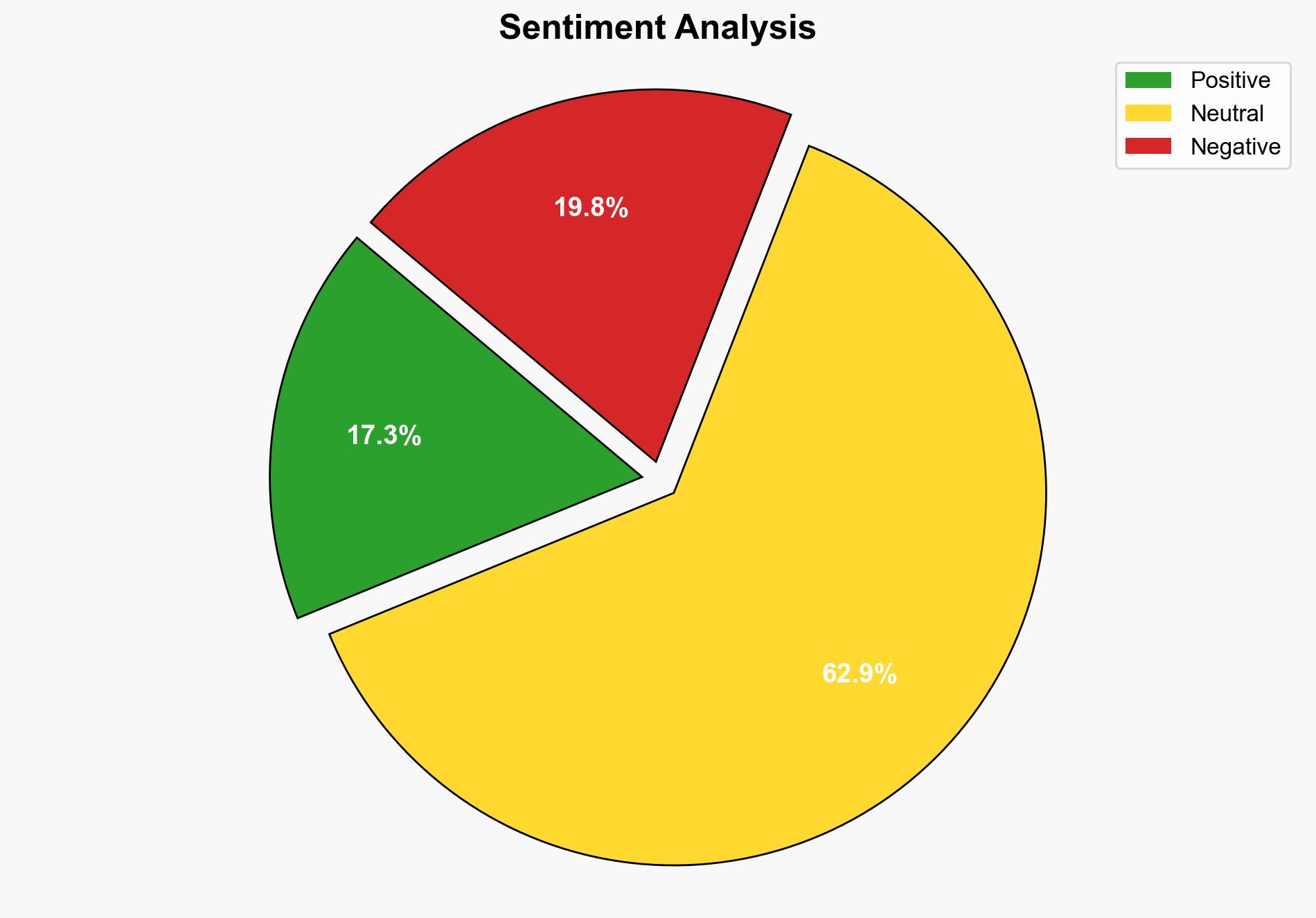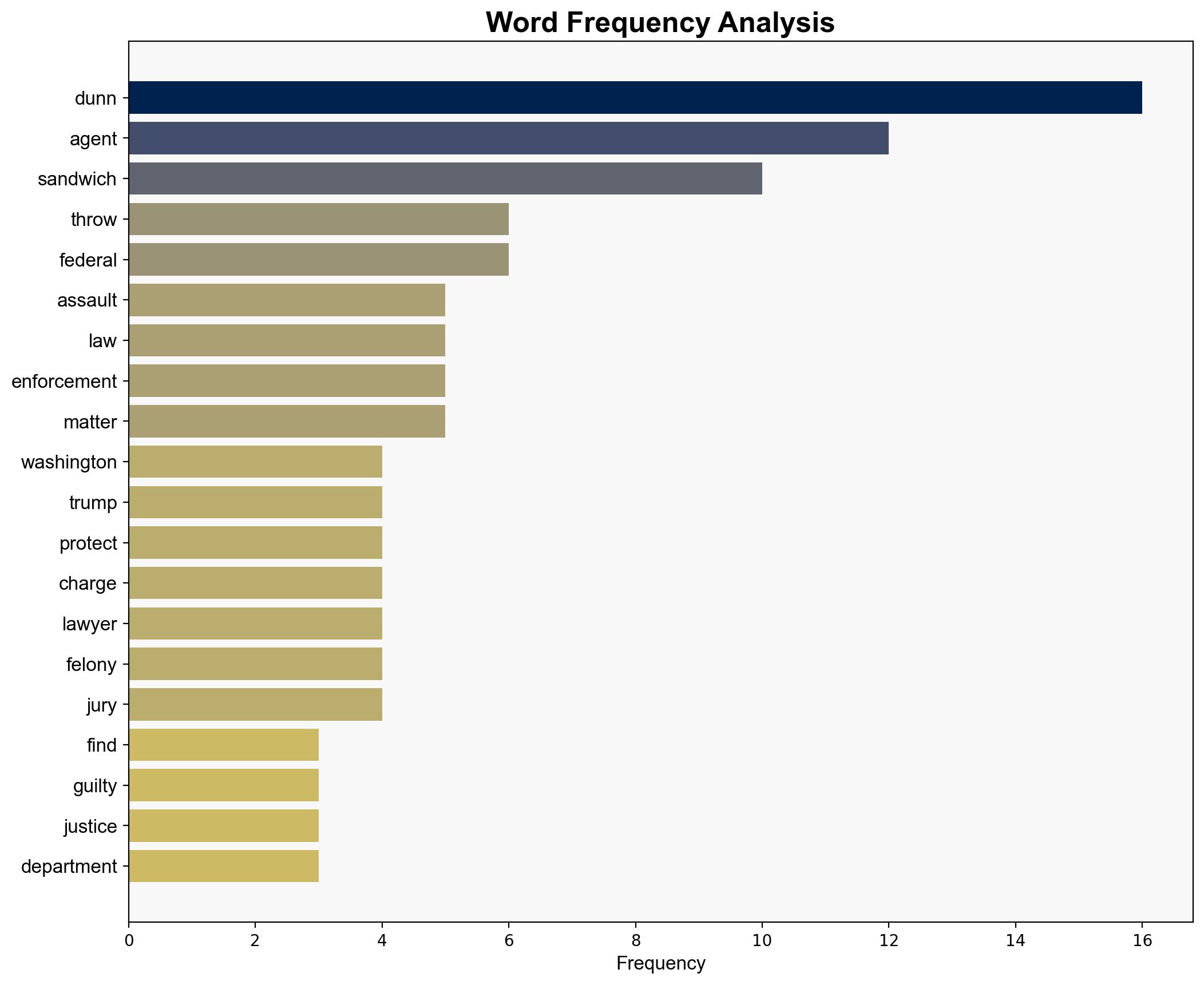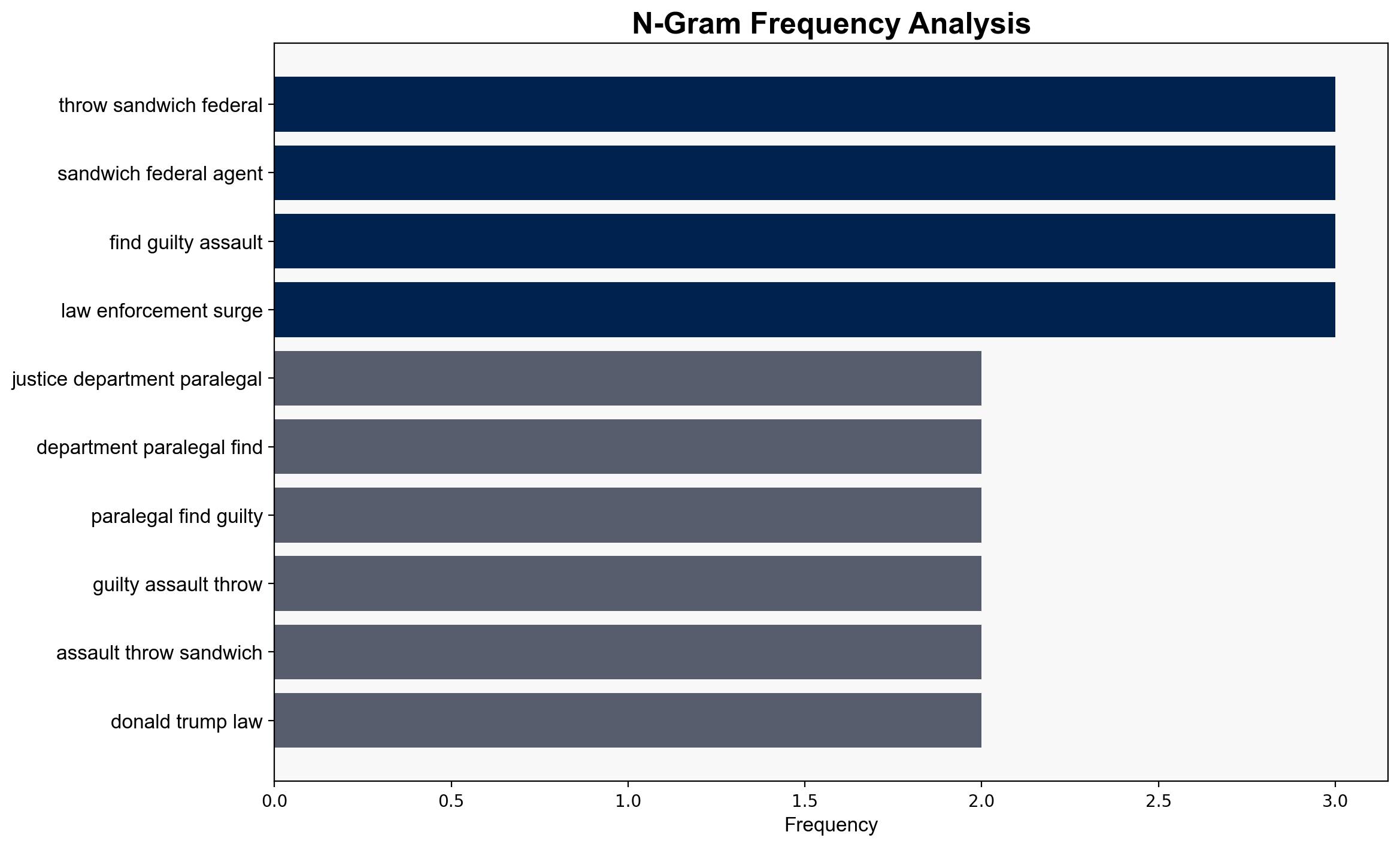Man who threw sandwich at federal agent found not guilty of assault – ABC News (AU)
Published on: 2025-11-07
Intelligence Report: Man who threw sandwich at federal agent found not guilty of assault – ABC News (AU)
1. BLUF (Bottom Line Up Front)
The acquittal of Sean Charles Dunn, who threw a sandwich at a federal agent, highlights potential overreach in prosecutorial tactics and raises questions about the balance between protest rights and law enforcement authority. The most supported hypothesis suggests this incident reflects a broader trend of politicized legal actions during heightened tensions. Confidence level: Moderate. Recommended action: Review and assess prosecutorial guidelines to ensure alignment with constitutional rights and public sentiment.
2. Competing Hypotheses
1. **Hypothesis A**: The prosecution of Sean Charles Dunn was politically motivated, reflecting an aggressive stance against dissent during a period of increased federal law enforcement presence.
– **Supporting Evidence**: The defense argued the act was a harmless protest gesture. The grand jury’s refusal to indict on felony charges and the subsequent acquittal suggest weak grounds for severe charges.
2. **Hypothesis B**: The prosecution was a standard legal response to an assault on a federal agent, irrespective of the political climate or the nature of the object thrown.
– **Supporting Evidence**: Prosecution argued that any assault on law enforcement, regardless of severity, warrants legal action. The agent’s testimony about the impact of the sandwich supports this view.
Using Analysis of Competing Hypotheses (ACH), Hypothesis A is better supported due to the lack of felony charges and the context of heightened political tensions influencing legal actions.
3. Key Assumptions and Red Flags
– **Assumptions**:
– Hypothesis A assumes political motivations influenced the prosecution’s decision-making process.
– Hypothesis B assumes all assaults on federal agents are treated equally under the law.
– **Red Flags**:
– The unusual decision by the grand jury not to indict on felony charges.
– Potential bias in media portrayal and public perception influenced by political affiliations.
– **Blind Spots**:
– Lack of detailed information on internal prosecutorial discussions and decision-making criteria.
– Insufficient data on similar cases for comparative analysis.
4. Implications and Strategic Risks
– **Patterns**: Increasing incidents of perceived overreach in law enforcement actions during politically charged periods.
– **Cascading Threats**: Potential erosion of public trust in legal institutions if perceived as politically biased.
– **Escalation Scenarios**: Heightened tensions could lead to more confrontations between protestors and law enforcement, impacting public safety and civil liberties.
5. Recommendations and Outlook
- Conduct a comprehensive review of prosecutorial guidelines to ensure they are free from political influence and uphold constitutional rights.
- Implement training for law enforcement on managing protests to minimize escalation and protect civil liberties.
- Scenario Projections:
– **Best Case**: Improved public trust through transparent legal processes and balanced law enforcement responses.
– **Worst Case**: Increased civil unrest and legal challenges against perceived biased prosecutions.
– **Most Likely**: Continued scrutiny of law enforcement actions with gradual policy adjustments.
6. Key Individuals and Entities
– Sean Charles Dunn
– Gregory Lairmore
– Jeanine Pirro
– Pamela Bondi
7. Thematic Tags
national security threats, civil liberties, legal system integrity, protest management





